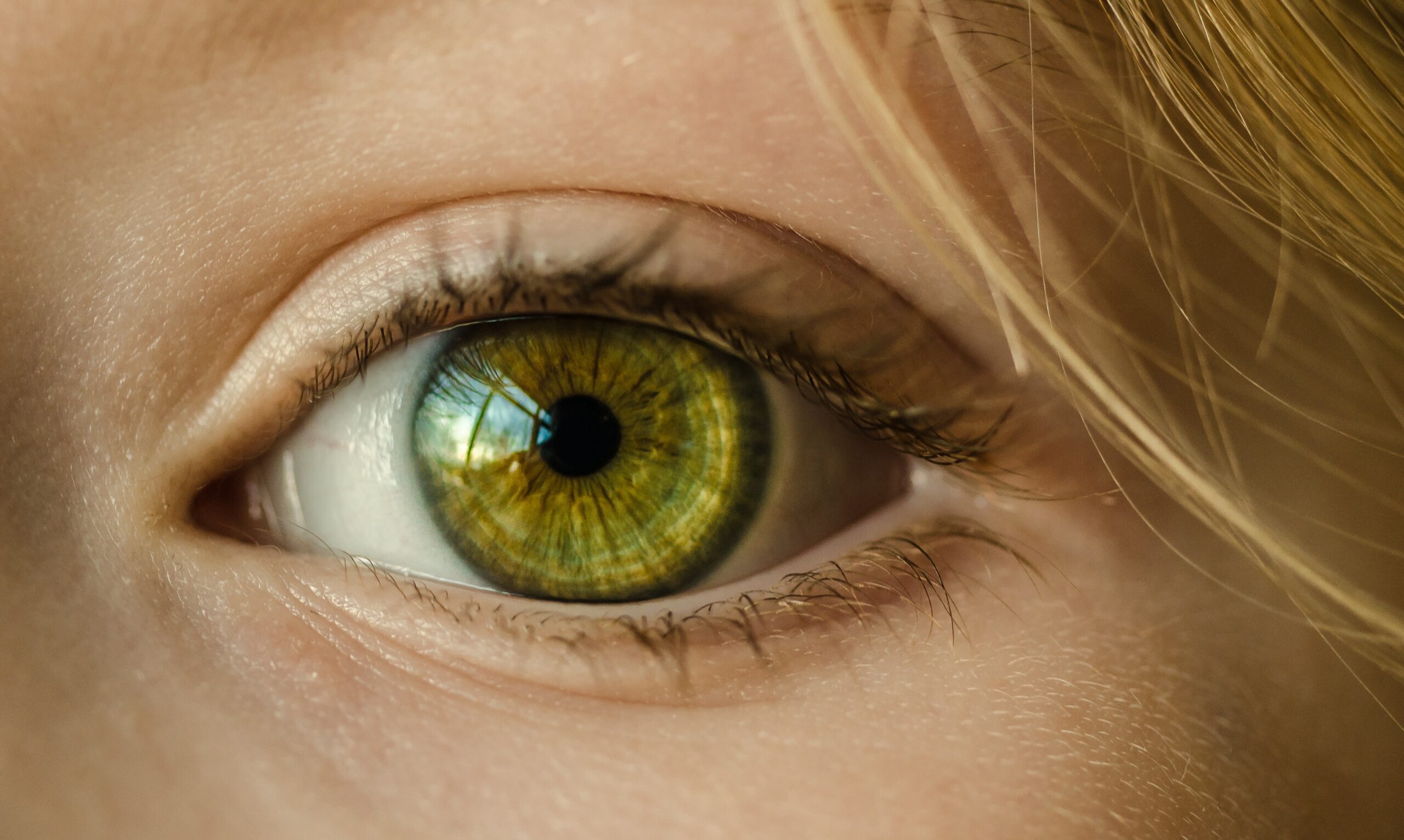March is Save Your Vision Month so we’re raising awareness with easy tips to keep your eyes healthy. People often believe that failing eyesight is just one of those inevitable things in life that are a part of aging. But truthfully, a healthy lifestyle has so many good effects that it can even reduce your risk of developing eye problems.
In addition to living well, there’s one thing that concerns eye doctors: the growing effects of blue light exposure. So we’ll concentrate on protecting your eyes from that risk, too.
What is Blue Light?
Blue light is everywhere, actually, because the sun is the main source. It’s what makes the sky looks blue. A short wavelength on the visible light spectrum, blue light also increases feelings of wellbeing and regulates your body’s circadian rhythm (natural sleep and wake cycle). However, too much exposure to blue light can be harmful.
The problem stems from all of the manmade sources of blue light that fill our days and have drastically increased our exposure. This includes indoor lighting (fluorescent and LED), flat-screen TVs and display screens on computers, notebooks, smartphones and other digital devices. While they don’t emit as much blue light as the sun, think about how many hours we are exposed – and how close they are to our eyes.
Blue light causes eyestrain and headaches as well as physical and mental fatigue. Because our bodies naturally associate blue light with daytime, too much exposure can mess with your internal clock, reduce your melatonin production, and make it harder to fall asleep. Even worse, many medical studies suggest that continued exposure to blue light can have long term effects, such as retina damage. It can also lead to age-related macular degeneration and loss of vision.
10 Tips to Reduce Your Blue Light Exposure
There are several things you can do to protect your eyes from blue light at home and work.
- Power down at night. Turn your digital device off at least an hour before bed. (Ideally, doctors would want you to aim for avoiding blue light four hours before bed, but we know this can be hard for a lot of people.)
- Think 20-20-20: Make an effort to take a 20-second break and look away from the screen every 20 minutes. Try to view something 20 feet away to give your eyes a break.
- Step back. Use the zoom feature to see small print rather than bringing the device closer to your eyes.
- Adjust for glare. You can adjust your device settings or use a glare filter to decrease the amount of blue light reflecting from the screen.
- Try wearing computer and gaming glasses to help reduce blue light exposure. They’re available without a prescription. Doctors especially recommend wearing these blue-light-blocking glasses at night. In one study, people who wore these glasses three hours before bed reported better sleep quality and mood. The study was repeated more recently with male teens and they had similar results.
- Wear quality sunglasses to protect your eyes from harmful light rays when you’re outside. If you’re having cataract surgery, or have already had it, ask your eye doctor about extra blue light protection.
- Eat a healthy, nutrient-rich diet. Studies show that a diet rich in omega-3 fatty acids and antioxidants from colorful fruits and veggies can keep your eyes healthy.
- Exercise. Over the last decade, studies have found a link between regular physical activity and a reduced risk of eye diseases. A brisk walk can decrease the risk of cataracts. Exercising three times per week can make you less likely to develop wet age-related macular degeneration.
- Schedule an eye appointment at least every two years. Visit a doctor of optometry for a comprehensive eye exam to address and prevent any vision problems. Your eye doctor can let you know if you’re at higher risk for eye disease based on your occupation or family health history.
- Go for a physical exam, too. Did you know that diabetes is the top cause of blindness in the U.S.? Regular screenings can help you stave off diseases such as diabetes and high blood pressure that can lead to eye problems.
See your physicians at YourTown Health for more information. To make an appointment, call one of our seven clinics.

